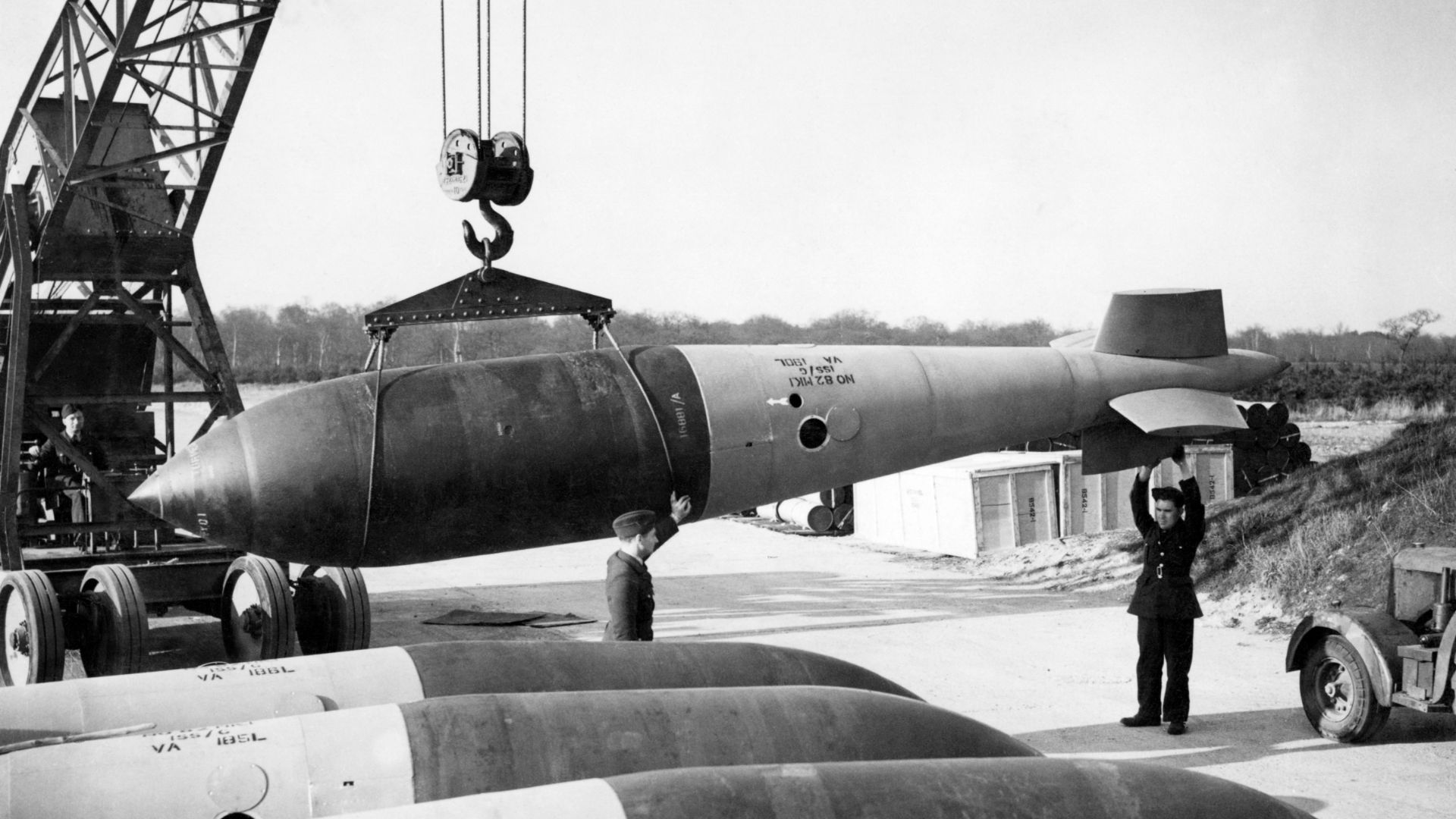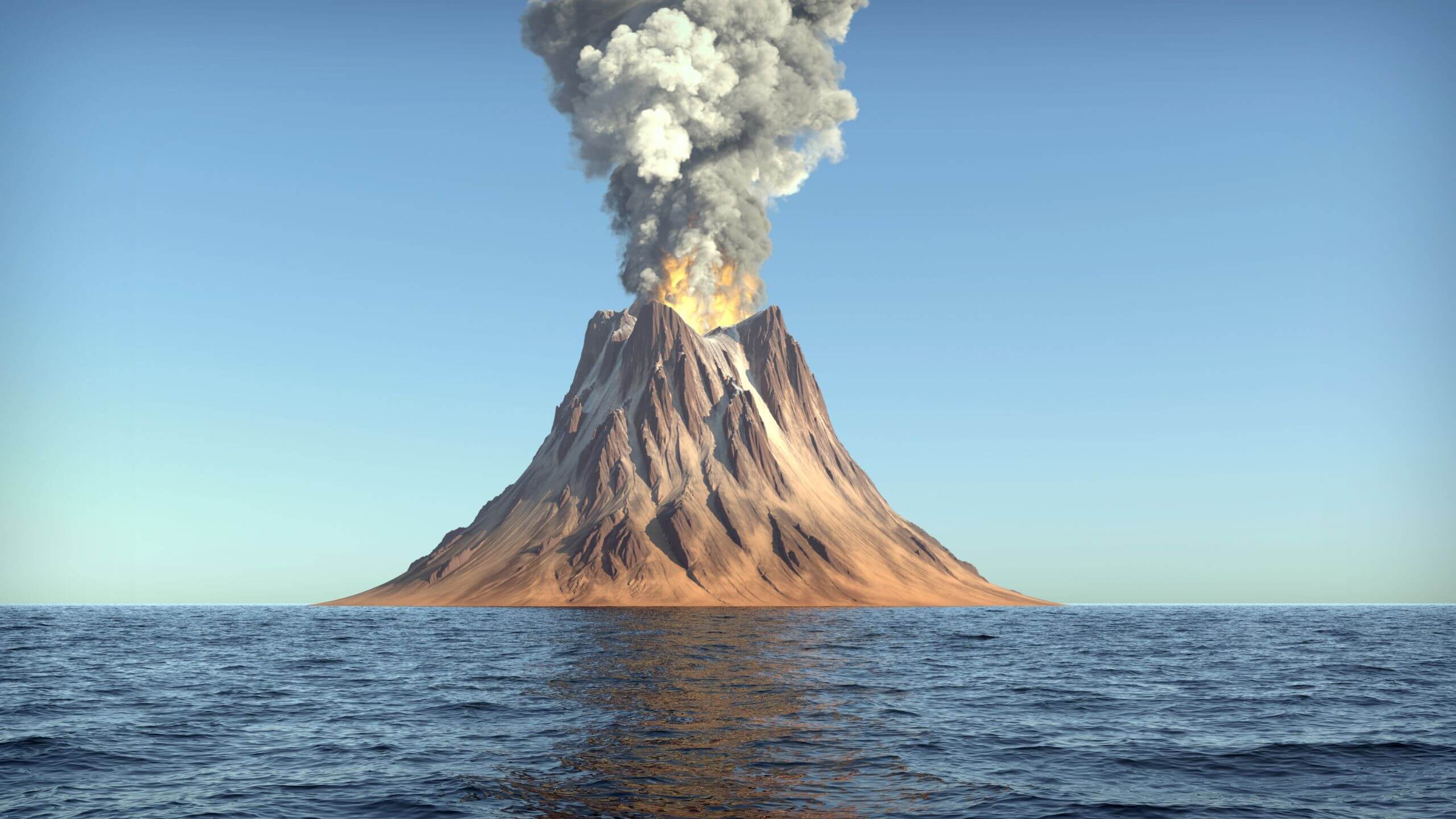A volcanic eruption occurs when lava and gasses are released from a volcano. It is one of the most powerful forces on earth and can have devastating effects. The main factors that trigger this process include; the buoyancy of the magma, pressure caused by the gasses in the magma, and the influx of a new quantity of magma into an already filled magma cavity. Let’s take an insight on what triggers volcanic eruptions.
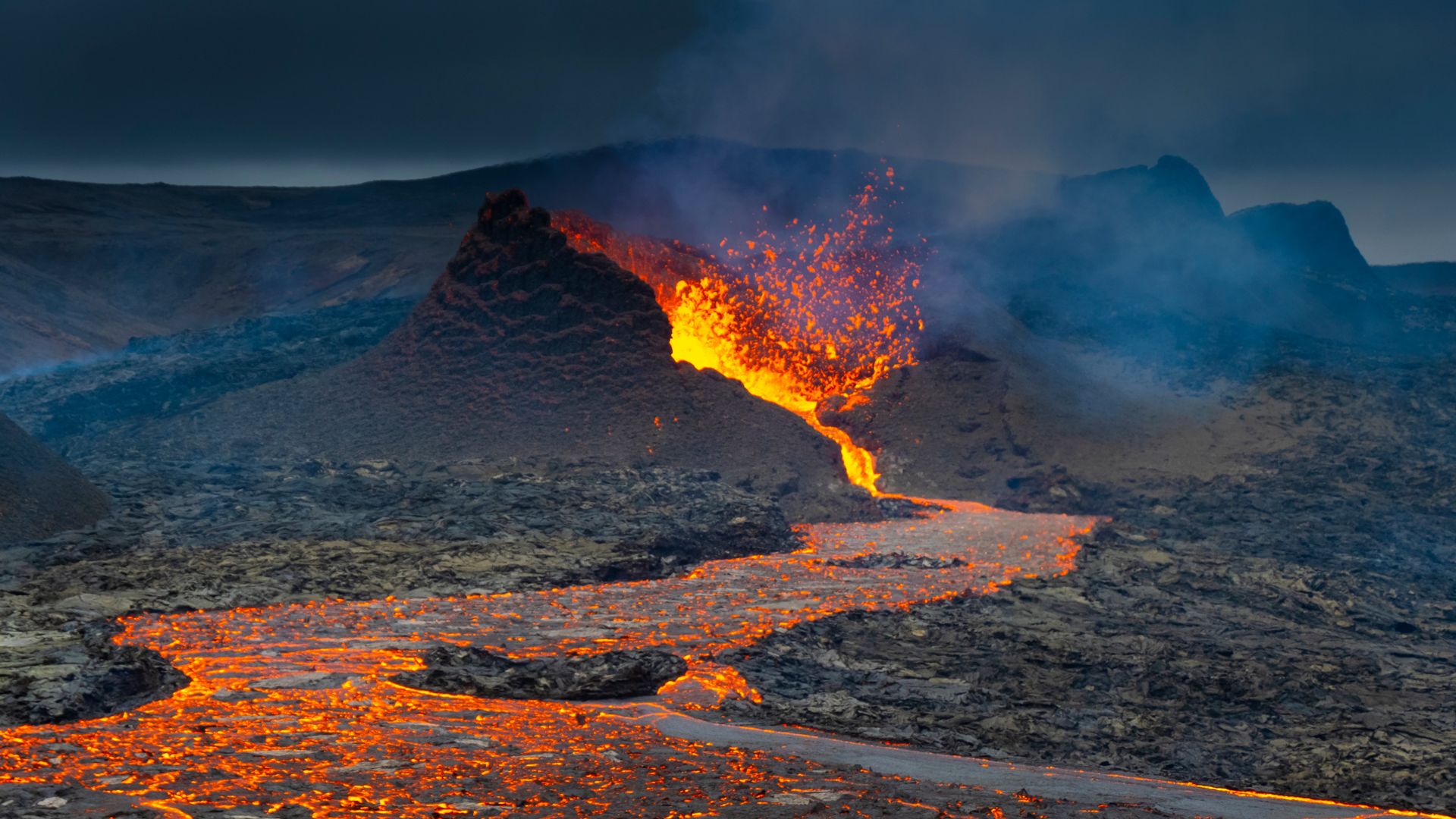
What Triggers Volcanic Eruptions
A combination of geological processes beneath the earth’s surface trigger volcanic eruptions. The main factors that trigger a volcanic eruption are: buoyancy of the magma, an increase in pressure in the magma chamber, and the influx of a new quantity of magma into an already filled cavity of magma.
A volcano is basically an opening through which magma and gasses it contains are released. Magma is generated beneath the earth’s surface when a portion of the lower crust or upper mantle of the earth melts because of tectonic activity or changes in the temperature or composition within earth’s mantle. It then causes excessive pressure within the magma chamber. This increase in pressure eventually forces the molten rocks to move upward and make a way through the earth’s crust, resulting in a volcanic eruption.
Also Read: What is the largest active volcano in the world?
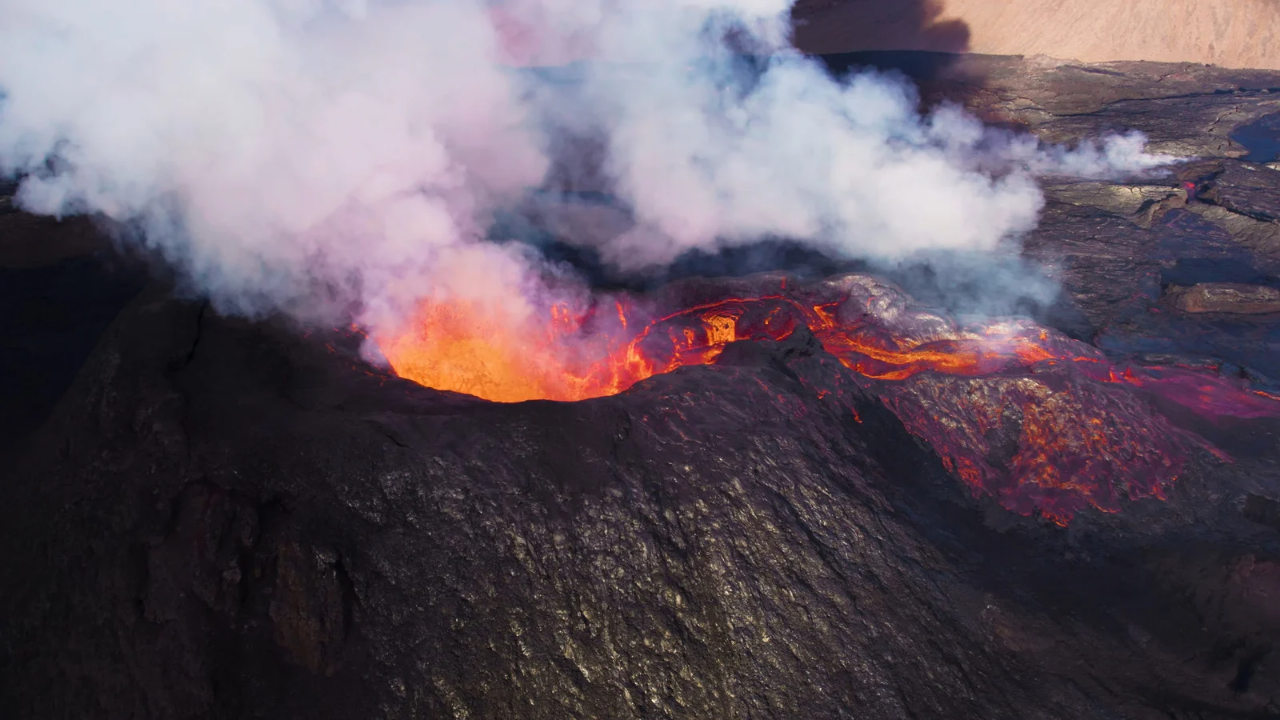
What Are The Three Main Factors That Triggers A Volcanic Eruption?
The three main factors that triggers a volcanic eruption are:
-
- Buoyancy of the Magma. When rocks melt into magma beneath the earth’s surface, its volume increases and its density decreases as compared to the surrounding rocks. This less dense lighter magma then moves upward to the surface because of its buoyancy. The magma with a lower density at the zone where it was formed and at the surface as compared to the surrounding and overlying rocks will move to the surface and erupt.
- Excessive pressure caused from the exsolved or separated gasses in the magma. Magmas also contain dissolved volatile gasses like carbon dioxide, sulfur dioxide, and water vapors. Experiments reveal that the solubility of gasses in magma at atmospheric pressure is zero, but it increases as the pressure increases.
For example, the amount of dissolved water in an andesitic magma that lays 5 km beneath the earth’s surface is about 5% of its weight. This solubility of water decreases when magma moves upward towards the surface and water vapors in the form of bubbles exsolves from the magma. With the upward movement of magma towards the surface, the pressure decreases and more water separates from magma. When the bubbles’ volume becomes 75%, the magma breaks up to partially molten and solid fragments and erupts in an explosive manner. - The influx of new magma into an already filled cavity of magma is another process that triggers a volcanic eruption. This influx forces some of the magma to move upward in the channel and erupt the surface.
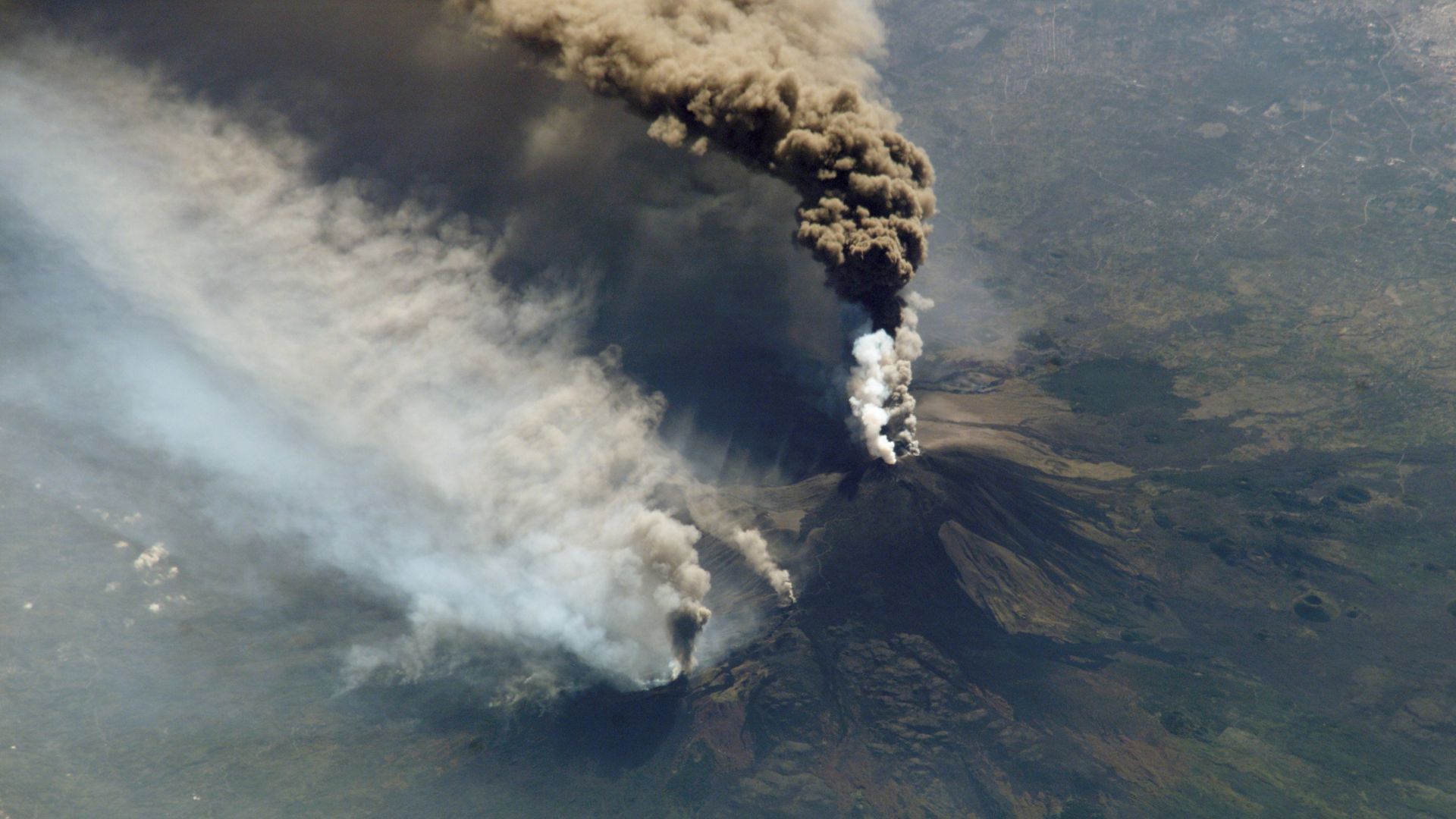
Can Humans Trigger Volcanic Eruptions?
No, humans can not trigger volcanic eruptions directly. However, some of the human activities can affect the probability of a volcanic eruption. For example, drilling for gas and oil reservoirs near volcanoes or geothermal regions can increase the interaction possibility of fluids from these reservoirs with magma chambers below the earth’s surface. It could increase pressure in the magma chamber and may lead to eruption. In some areas, large-scale construction projects like dams have been known to change seismic activity and contribute to the increased risk of volcanic eruption.
Can A Bomb Trigger A Volcanic Eruption?
Yes, a bomb can trigger a volcanic eruption. An extremely powerful explosion can cause seismic activity or earthquake in the volcano region and can even shift tectonic plates beneath it. This could lead to an eruption or other volcanic activity that may have not occurred without human involvement.
Additionally, bombs have the ability to release huge amounts of energy deep into the earth. This high amount of energy can cause destabilization in the magma chamber and can lead to volcanic eruption or other types of volcanic activity.
